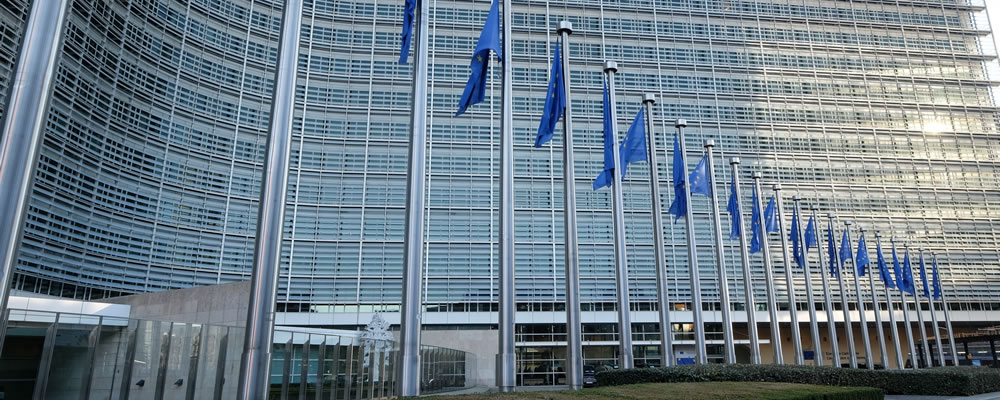Euro to Australian Dollar Exchange Rate Fluctuates as ‘Aussie’ Fails to Capitalise on Euro Weakness
The Euro to Australian Dollar (EUR/AUD) exchange rate has seen mixed movement since markets opened this week, amid developments with Italy’s budget plan issue as well as some leftover safe haven demand weighing on the Australian Dollar (AUD).
Last week saw EUR/AUD slump from 1.62 to briefly hit a low of 1.60 on Friday, before recovering and closing the week at the level of 1.61.
Since markets opened, EUR/AUD has fluctuated without moving too far from the week’s opening levels. EUR/AUD currently trends just above the opening levels, but its movements today are generally muted.
A Monday attempt from Italy’s government to defend its controversial budget plan was not enough to satisfy EU critics, leaving the Euro (EUR) weakened by political uncertainties.
However, with Australia facing its own political jitters, as well as the safe haven US Dollar (USD) still benefitting from global political uncertainties, the Australian Dollar was unable to capitalise.
Euro (EUR) Exchange Rates Limp amid Italian Budget Uncertainties
Italy’s new anti-establishment government has been under fire from the EU since last week, as the government unveiled a budget plan that the EU said that Italy’s plan contained an ‘unprecedented’ breach of budget rules.
The Italian government attempted to defend its budget plan on Monday and reasserted that it had no intention of breaking from the EU or the Euro.
However, as the EU remains unhappy with Italy’s budget plan and speculation rises that the EU may be forced to reject the budget plan entirely, Euro investors are still anxious about tensions between the EU and Italy’s government.
According to Mujtaba Rahman, political analyst at Eurasia Group in London:
‘The commission really has no choice but to reject Italy’s budget,
Both the substance of the government’s proposals and the way they are being communicated are a big headache.’
Tuesday’s Eurozone data has had little impact on the Euro thus far. September’s German PPI results beat expectations in both prints, coming in at 0.5% month-on-month and 3.2% year-on-year.
Australian Dollar (AUD) Fails to Capitalise amid Persistent Global Risk-Aversion
Due to concerns about Italy’s budget, as well as other global political jitters like Brexit uncertainties and the possibility of a minority government in Australia, investors have been hesitant to buy riskier currencies too much.
As a trade-correlated currency, the Australian Dollar is often perceived as fairly risky and is typically weaker in times when markets find safe havens more appealing.
Instead, the recently strong safe haven US Dollar (USD) has remained resilient amid the latest global political uncertainties.
Over the weekend, Australia’s ruling Liberal Party lost a seat in government due to an independent win at a by-election in Wentworth.
This meant that the Liberal Party had lost its majority government, a majority that it had held by only one seat recently.
The news wasn’t significantly concerning to Australian Dollar investors or hugely change the currency’s outlook, but did bolster market demand for safe haven currencies and prevent the Australian Dollar from benefitting from Euro weakness.
Euro to Australian Dollar (EUR/AUD) Exchange Rate Could Fluctuate Until ECB Decision
Investors still have little reason to move on the Euro to Australian Dollar (EUR/AUD) exchange rate this week.
Euro investors await Italian political developments and Thursday’s European Central Bank (ECB) policy decision, while the Australian Dollar is limp amid mixed demand for risky trade-correlated currencies.
The Euro could strengthen if Italy reaches an agreement with the EU over its budget plan, but the shared currency could still weaken further if tensions worsen.
Meanwhile, the Australian Dollar is unlikely to strengthen much unless safe haven demand cools and investors become more willing to take risks again.
Upcoming Eurozone data could prove influential and may cause a little movement in the coming days, particularly if Markit’s October PMI projections surprise investors on Wednesday.
However, the European Central Bank’s October policy decision, set for Thursday, is more likely to inspire Euro movement.
If the bank indicates that its quantitative easing (QE) withdrawal could be a little more dovish, as some investors fear, the Euro to Australian Dollar (EUR/AUD) exchange rate could be in for some late-week losses.



